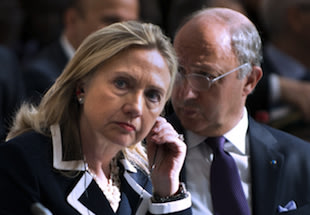WASHINGTON (Reuters) – A U.S. Food and Drug Administration panel of outside experts voted against recommending Zogenix Inc’s Zohydro painkiller for FDA approval on Friday, citing concerns about the danger of addiction posed by the drug class known as opioids.
But FDA officials said the regulatory agency could still approve the drug for sale in the United States by imposing restrictions to protect public safety.
In an 11-2 vote, advisory committee members said the San Diego-based pharmaceutical company had met narrow FDA targets for safety and efficacy but worried that the drug known generically as hydrocodone bitartrate could become a drug of choice for people addicted to other opioid painkillers including those based on the drug oxycodone.
“The primary thing has to be the public health,” said Dr Judith Kramer of Duke University. “And I don’t see how we can’t see this as a promised repeat performance.”
FDA officials will consider the committee’s recommendation in deciding by March 1 whether to approve Zohydro for sale in the United States for people who require a round-the-clock painkiller for an extended period of time.
Dr Bob Rappaport, director of the FDA’s division of anesthesia, analgesia and addiction products, said regulators must decide whether the panel’s decision was based on a tangible difference between Zohydro and opioid-based medications already available in the marketplace.
Otherwise, he told the panel, “you’re punishing this company and this drug because of the sins of the previous developers and their products. And from a regulatory standpoint, that’s not really something we can do.”
POSSIBLE SALES BOOST
Wall Street analysts say FDA approval could bring Zogenix up to $ 500 million in annual sales from Zohydro by 2019, or more than ten times the pharmaceutical company’s expected 2012 annual revenue of $ 45.5 million.
Trading of Zogenix shares was suspended on Friday because of the FDA hearing. The stock closed at $ 2.36 on Thursday.
Zohydro is a single-entity, extended-release product containing the narcotic painkiller hydrocodone with no other pharmaceutical ingredient such as acetaminophen, which can lead to liver damage if used too often.
“Zogenix recognizes and appreciates that prescription opioid misuse and abuse is a critical issue. However, it is also important to remember that there is a documented patient need for an extended-release hydrocodone medicine without acetaminophen,” the company said in a statement.
“We remain confident in the measures we have proposed to support safe use of Zohydro and are committed to continuing to work with the FDA through the review process to bring this treatment option to this specific patient population,” it added.
Health officials say hydrocodone, the active ingredient in Zohydro, is already the most widely abused drug in an opioid class linked to a prescription drug abuse epidemic that has ballooned over the past 20 years.
Law enforcement officials say prescription drugs now pose a bigger public safety hazard than more traditional narcotics, including heroin and cocaine.
An estimated 7 million Americans abuse pharmaceutical drugs. Prescription drugs account for about 75 percent of all drug-related U.S. overdose deaths, according to the U.S. Centers for Disease Control and Prevention. Three of every four deaths from pills involve opioid pain relievers including oxycodone.
SHARPLY CONTRASTING TESTIMONY
Before voting, the panel heard testimony from more than a dozen public witnesses, including chronic pain sufferers who see drugs like Zohyrdo as needed treatments to control their chronic discomfort and allow them to lead normal lives without endangering their health.
But some speakers before the panel implored the experts not to recommend another potentially addictive opioid.
“Today we have a chance to save people,” said Avi Israel, father of an 18-year-old boy who suffered from Crohn’s disease and committed suicide after becoming addicted to hydrocodone that was prescribed to slow his bowels.
“Ask yourself this question,” he added, “do we really need another narcotic pill to help anybody with pain? We can’t handle what we have.”
Earlier on Friday, the panel conducted separate and sharply divided votes on safety and efficacy.
Committee members voted 9-5 to find that the drug was not safe for treating patients with moderate to severe chronic pain, after voting 7-6 to find the treatment effective against pain. A panel member later changed her vote on efficacy from “no” to “yes,” saying she had made a technical error.
(Editing by Carol Bishopric and Matthew Lewis)
Medications/Drugs News Headlines – Yahoo! News











